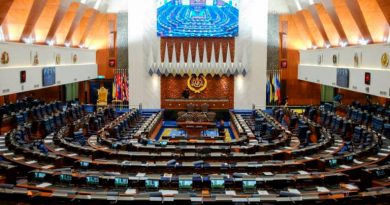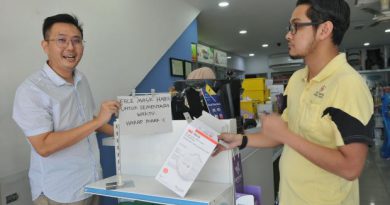IRDA AND BRITISH HIGH COMMISSION COLLABORATION SEEKS TO STRENGTHEN URBAN AND TRANSPORTATION PLANNING IN ISKANDAR MALAYSIA
Iskandar Malaysia, July 29, 2019 – Iskandar Regional Development Authority (IRDA) and the British High Commission are working together to strengthen urban and transportation planning in Iskandar Malaysia under the UK’s ‘Prosperity Fund Global Future Cities Programme 2019 – 2022’.
Witnessed by YAB Dato’ Dr Sahruddin Jamal, Menteri Besar of Johor, the Memorandum of Understanding (MoU) was signed between YBhg Datuk Ismail Ibrahim, on behalf of (IRDA) and HE Charles Hay, the British High Commissioner to Malaysia.
Under the programme, approximately RM16 million has been allocated for the collaboration in two proposed projects. First, the ‘Smart Integrated Mobility Management System’ (SIMMS) project which will see the development of the implementation strategy for Iskandar Malaysia’s Smart Integrated Mobility Management System.
Second is the ‘Data Utilisation and Data Management for Evidence-Based Urban and Transport Planning’ project which aims to introduce planning decision support which utilises data from the integrated mobility system for better city planning outcomes and will support to the Iskandar Malaysia Urban Observatory for continuous data integration and analytical.
In general, the proposed projects aim to promote an effective and efficient transportation movement in Iskandar Malaysia and encourage the usage of public transportation in line with the revenue operations of Bus Rapid Transit (BRT) system in 2022. BRT promotes accessible, connected and inclusive cities that contribute to overall city prosperity, in line with the Sustainable Development Goals (SDGs) and implementation of the New Urban Agenda (NUA).
“Transportation will be a key driver in making Iskandar Malaysia the preferred destination to invest, work, live and play. It is most important that this is implemented with the best intention for the many stakeholders in the region such as the investors, visitors and the Rakyat. The fund and partnership deriving from the Programme will give a boost to the effort,’ said YBhg Datuk Ismail Ibrahim, Chief Executive of IRDA
The Global Future Cities Programme, which is a part of a wider portfolio called the UK’s Prosperity Fund, aims to support a range of strategic projects in 19 cities across 10 countries, and Iskandar Malaysia has been selected to be a part of the programme. The Programme builds upon three integrated pillars that will address key barriers to prosperity namely Urban Planning, Transportation, and Resilience.
“The UK is a world leader in the future cities concept. This ranges across infrastructure; construction; standards; and financial services. We take a holistic approach to future cities development, taking into account social, environmental, economic and political factors. I am delighted that we are working with IRDA to develop Iskandar Malaysia into a strong and sustainable metropolis of international standing, our projects will also contribute towards Iskandar Malaysia’s Smart City initiatives in the ASEAN Smart Cities Network.” said HE Charles Hay, British High Commissioner to Malaysia.
More specifically, the ‘Smart Integrated Mobility Management System’ (SIMMS) project looks at:
- optimising Iskandar Malaysia’s road network in terms of capacity and efficiency;
- minimising traffic congestion, GHG emissions, air and noise pollution;
- efficiency gains for the private and public sector, as well as private individuals regarding travel times and cost;
- data-driven efficiency gains in the public sector in terms of mobility management and;
- data collection to contribute to evidence-based urban and transport planning in line with the Programme objectives.
For the ‘Data Utilisation and Data Management for Evidence-Based Urban and Transport Planning’ project, the proposed scope will be:
- the integration and utilisation of data for sustainable urban and transport planning that improves social, economic and environmental conditions in Iskandar Malaysia;
- the improvement and understanding of the travel need of different user groups, including children, youth, the elderly, women, persons with disabilities or impairments and other vulnerable groups;
- environmentally sustainable connectivity and accessibility for all with reduced trip lengths and cost;
- better understanding as to how to promote modal shift away from private motorised transport;
- efficiency gains in urban and transport planning processes through a growing evidence-based approach and;
- data sharing across different sectors and authorities for better co-ordination of urban and transport planning in line with the Programme objectives.
Source: IskandarMalaysia



